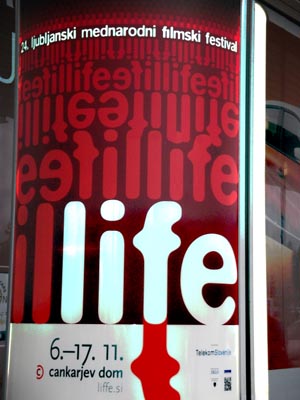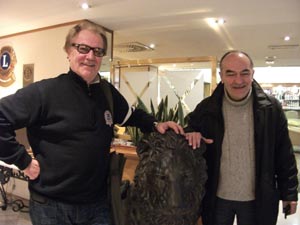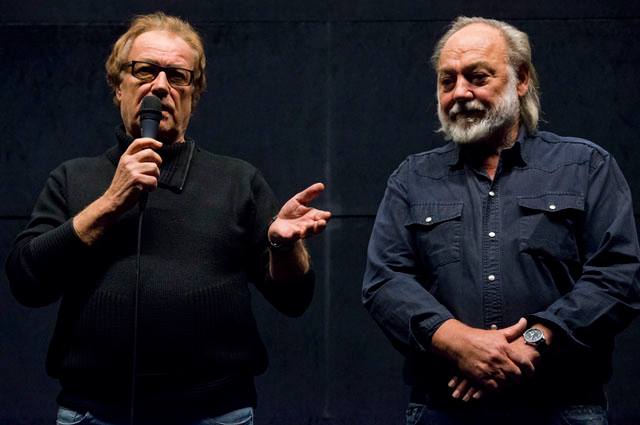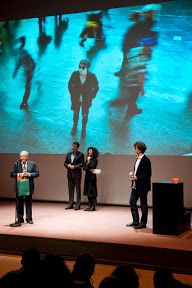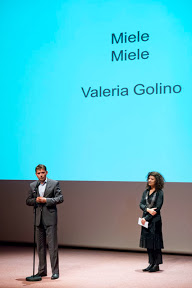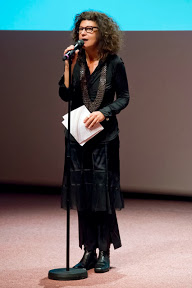|
|
||
|
Pro Tools
FILMFESTIVALS | 24/7 world wide coverageWelcome ! Enjoy the best of both worlds: Film & Festival News, exploring the best of the film festivals community. Launched in 1995, relentlessly connecting films to festivals, documenting and promoting festivals worldwide. Working on an upgrade soon. For collaboration, editorial contributions, or publicity, please send us an email here. User login |
Ogresta – Behind the Glass- No Typical Croatian FilmOn the territory of Balkan, in countries of ex Yugoslavia, it is beyond the doubt a miracle to see film that deals on every day subject of a contemporary life we all are living in. One Croatian film director does that really well. I’m talking about film director and professor of Drama Academy in Zagreb Zrinko Ogresta. He deals with no past civil war; no Balkan politics toward rest of the world, no war crimes, no people trafficking, but ordinary people and ordinary life, on such manner that anyone in world can understand it. Language that he speaks is easy to swallow, to comprehend, and it is definitely no typical Croatian or Balkan film. “Behind the Glass” is a film that deals with eternal subject, a love triangle, which maybe is a theme that sometimes big film festivals do not want, but is the film that everyone will stay foot, right to the end. Most of the films from ex Yugoslavian region that have achieved something on international scene in the last 10-15 years, carry on sub-political messages or heavy subjects such as war crimes, politics, massacre and history. Ogresta’s principle is different. People can have different opinions on the film, but they will recognize a true every day inspiration, a simple temptation –a love triangle. In “Behind the Glass”, the official competition entry at Karlovy Vary and winning of Audience Award at the Motovun Film Festival, Ogresta concentrates on a love triangle between Nikola (Leon Lucev), his colleague and mistress Ana (Darija Lorenci) and wife Maja (Jadranka Djokic). And Nikola fights between his two women.
“Behind the Glass “film has no usual calculation or political catch that will allow political propaganda or current political fashion to take advantage in order to open inter-ethnic relationship doors to many festivals. Ogresta here is interested in individual, in their intimate drama and problems. He believes that a particular problem can be interpreted as universal in a wider social context. Film ends’ ludicrous and has credits that often attributes to a TV-soap feel, and at first might scream as a nouveau riche. But it is not. There is no big deal, no big words, no social past civil war here, just us…Us, living our ordinary life, a story that can happen anywhere in the world. The film is a social commentary and the statement of time and it concentrates on human suffer, within the context of modern contemporary upper middle class. We are watching the characters from a distance. A backup to this approach are characters themselves and the story really is “a leit-motif - a poisonous algae that has accidentally been released from an aquarium in Monaco and spread throughout the Mediterranean, destroying all other marine vegetation”, said in film by one of characters. Film seems to be very personal, but it does tell universal story of human being, in the situation where anyone cannot change, just a human nature. And yet we can all identify ourselves in it. Here, we see the film made by the book.
“Behind the Glass is my attempt to face some of my personal dilemmas and failures in life. I allowed myself to make a film that probably personally concerns me the most. I felt that I had a very personal subject matter, not autobiographical, but which corresponded with audiences. It's about a very common problem but it is shaped in a personal way and people can recognize themselves in it. It's in my nature. I am interested with people and I watch them from a distance without going into their relationships directly, almost in a voyeuristic way. That is a part of my character that is transferred to the film...”
Considering the subject that follows, this is the kind of film that demands a strong acting and carefully chosen crew. To prove the point, next to Leon Lucev Ogresta successfully chooses Jadranka Djokic, who subsequently won the Golden Arena for Best Actress at the Pula Film Festival for the part, and on the screen, you can actually see the chemistry between them.
I think that film “Behind the Glass” represents move forward in Croatian production today. The film is invited, because of the production values, on couple of European cinema and between of seven films in competition at this year’s national Pula Film Festival, this film really falls out of the usual standard pattern. The festival prospects here are bright: the film has been invited to Cairo, Rome, Goteburg, Denver and Ghent, which is pretty good and proves the point. 20.11.2008 | Radmila Djurica's blog Cat. : Ana Audience Award Behind the Glass CAIRO Cinema of Croatia Denver Entertainment Entertainment Ghent Goteburg Here Jadranka Djokic Leon Lučev Leon Lucev Leon Lucev Ogresta Maja Monaco Pula Film Festival Pula Film Festival Rome Social Issues Social Issues the Motovun Film Festival the Pula film festival Zagreb Zrinko Zrinko Ogresta FILM
|
LinksThe Bulletin Board > The Bulletin Board Blog Following News Interview with IFTA Chairman (AFM)
Interview with Cannes Marche du Film Director
Filmfestivals.com dailies live coverage from > Live from India
Useful links for the indies: > Big files transfer
+ SUBSCRIBE to the weekly Newsletter Deals+ Special offers and discounts from filmfestivals.com Selected fun offers
> Bonus Casino
User imagesAbout Radmila DjuricaThe EditorUser contributions |



















